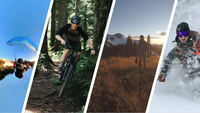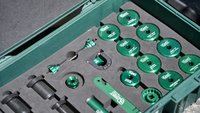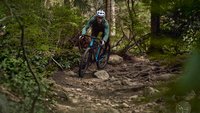Can we do this where there's disagreement but no mud slinging? So like "I don't like thing X because reason Y" without reason Y being some sort of put down or attack?
Recent articles/posts have me thinking again about how better gear is making riding better in many respects but also easier from some respects too. For example tires that are made of glue and stick to anything or super wide range cassettes that offer easier pedaling that what people ran back in the 2X days or suspension or brakes, etc, etc. There are for sure riders maximizing these advancements and riding in ways we probably never would have imagined a decade ago (and also risking greater harm in a crash - but that's a thread for another day) but has the typical rider actually gotten better in terms of riding skill or is is mainly the better bikes that have us riding better? It's the old buying skill questions. And yes, we can bring ebikes into this as well. Discuss or not, but let's keep it focused on the topic/posts and not make it about the person posting.
We don't know what our limits are, so to start something with the idea of being limited actually ends up limiting us.
Ellen Langer







